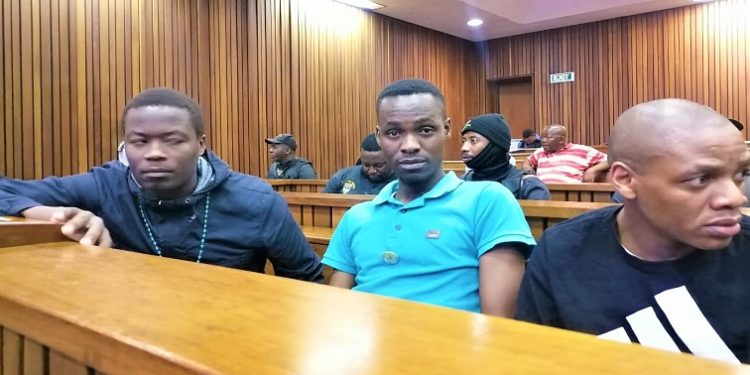In a significant development in the ongoing Senzo Meyiwa murder trial, the High Court in Pretoria has ordered the transfer of Mthobisi Mncube, one of the five accused, from the high-security C-Max section of Kgosi Mampuru Correctional Centre. Mncube, who has been detained under maximum-security conditions since his arrest, argued that these harsh conditions impaired his ability to prepare an effective defense.
Background
The 2014 murder of Senzo Meyiwa, a beloved South African soccer star, shocked the nation. Meyiwa was fatally shot at the home of his then-girlfriend, singer Kelly Khumalo, in what was initially thought to be a botched robbery. After years of investigations and public outcry, five suspects, including Mncube, were arrested in 2020.
Mncube has since been held in the C-Max section of Kgosi Mampuru Correctional Centre, reserved for high-risk inmates. These facilities impose strict confinement measures, limited contact with others, and minimal time outside the cell. His legal team, however, argued that these conditions were unwarranted for someone awaiting trial and violated his constitutional rights.
Legal Arguments
Mncube’s lawyers contended that his detention in C-Max was unjustified and that it limited his ability to communicate with his defense team effectively. They argued that the stringent restrictions created psychological stress, undermined his right to a fair trial, and were inappropriate for someone presumed innocent until proven guilty.
The legal team also criticized the classification process that placed Mncube in maximum security, asserting it lacked consideration of his specific circumstances. They called for his transfer to a less restrictive section where he could access better conditions and adequate legal support.
The Court’s Ruling
The High Court ruled in Mncube’s favor, ordering his relocation to a less restrictive area within the correctional facility. The court acknowledged the need for prison security but emphasized that pre-trial detainees should not be subjected to conditions that undermine their rights or presuppose guilt.
In its judgment, the court stressed the constitutional principle of presumption of innocence and the state’s obligation to ensure fair trial rights, even within a high-security environment. It also called for a balance between maintaining security in correctional facilities and upholding detainees’ human rights.
Broader Implications
The ruling has significant implications for South Africa’s judicial and correctional systems, highlighting the treatment of remand detainees and the criteria for high-security classifications. Human rights advocates have long criticized the practice of subjecting pre-trial detainees to maximum-security conditions, arguing it violates the principle of “innocent until proven guilty.”
Legal experts suggest the decision could set a precedent for reviewing the treatment of remand detainees across the country. The case may also prompt reforms in how correctional facilities classify and manage individuals awaiting trial.
Impact on the Meyiwa Trial
Mncube’s transfer is expected to improve his ability to participate in his defense. Easier access to his legal team and better living conditions may enable him to contribute more effectively to his case, potentially impacting the trial’s proceedings.
Conclusion
The High Court’s decision to remove Mncube from C-Max marks a pivotal moment in the high-profile Senzo Meyiwa murder trial. Beyond its immediate effects, the ruling shines a spotlight on broader issues within South Africa’s correctional and judicial systems. It underscores the importance of balancing security concerns with the fundamental rights of detainees presumed innocent, setting a tone for greater scrutiny of the nation’s detention practices.






















